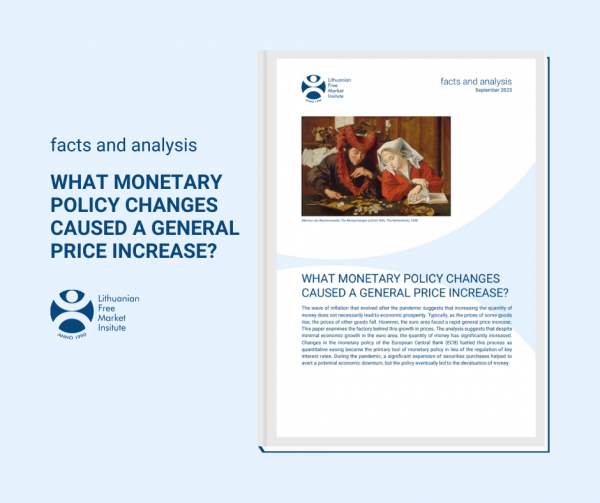 The wave of inflation that evolved after the pandemic suggests that increasing the quantity of money does not necessarily lead to economic prosperity. Typically, as the prices of some goods rise, the prices of other goods fall. However, the euro area faced a rapid general price increase. This paper examines the factors behind this growth in prices. The analysis suggests that despite minimal economic growth in the euro area, the quantity of money has significantly increased. Changes in the monetary policy of the European Central Bank (ECB) fuelled this process as quantitative easing became the primary tool of monetary policy in lieu of the regulation of key interest rates. During the pandemic, a significant expansion of securities purchases helped to avert a potential economic downturn, but the policy eventually led to the devaluation of money.
The wave of inflation that evolved after the pandemic suggests that increasing the quantity of money does not necessarily lead to economic prosperity. Typically, as the prices of some goods rise, the prices of other goods fall. However, the euro area faced a rapid general price increase. This paper examines the factors behind this growth in prices. The analysis suggests that despite minimal economic growth in the euro area, the quantity of money has significantly increased. Changes in the monetary policy of the European Central Bank (ECB) fuelled this process as quantitative easing became the primary tool of monetary policy in lieu of the regulation of key interest rates. During the pandemic, a significant expansion of securities purchases helped to avert a potential economic downturn, but the policy eventually led to the devaluation of money.
DOWNLOAD HERE